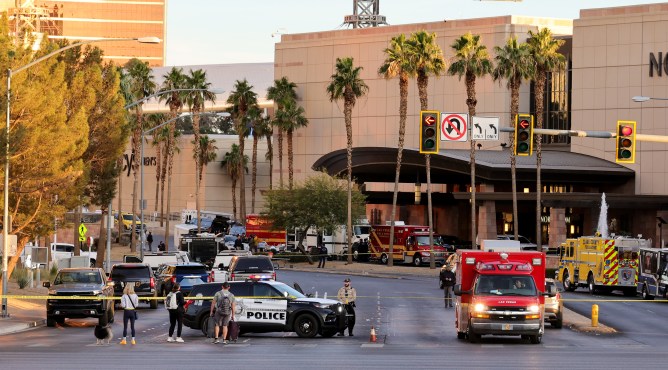Turo CEO says attackers had clean records, making background checks ineffective in preventing the breach.
Two incidents in New Orleans and Las Vegas raise questions about the platform’s safety measures
In a shocking turn of events, two individuals rented cars from Turo, a peer-to-peer car-sharing platform, and used them to commit acts of violence earlier this week. The first incident occurred when a military veteran driving a Ford F-150 Lightning drove into a crowd of people in New Orleans, killing at least 15. In the second incident, an active-duty Green Beret rented a Tesla Cybertruck, parked it in front of the Trump International Hotel in Las Vegas, and allegedly blew it up. The driver died by suicide.
Turo’s CEO Speaks Out
On Friday, Turo’s chief executive, Andre Haddad, issued a statement expressing his outrage at how the two individuals who perpetrated these heinous crimes abused their platform. He noted that Turo is working "around the clock" to figure out how the platform could have been misused like this.
The Challenge of Preventing Misuse
But how could Turo or any similar platform have prevented this? The answer lies in understanding the inherent risks associated with peer-to-peer car-sharing platforms. Turo has been described as "like Airbnb for cars," a platform where vehicle owners can rent out their cars for extra money or even as a full-time business.
How Turo Screens Renters
Turo claims to screen each renter through a proprietary multi-layer, data-science-based trust and safety algorithm called the Turo Risk Score. The company uses 50 internal and external data sources to build, maintain, and improve on that score. However, it’s not clear what this means in practice, and Turo has not responded to TechCrunch’s request for clarification.
Background Checks
It’s also unclear whether Turo performs normal criminal background checks on its renters. In the past, some bad actors have managed to slip through the cracks, embroiling Turo in controversy after cars on its platform were found to be used for human and drug trafficking. People who claim to be hosts regularly post on the Turo subreddit page about their cars being rented out to individuals with criminal histories.
The Limitations of Risk Assessment
Even if Turo’s background checks were foolproof, the two perpetrators of the crimes that happened this week in New Orleans and Las Vegas had valid driver’s licenses, clean criminal backgrounds, and were decorated U.S. military servicemembers, according to Haddad. He noted that they could have rented a car or truck from any traditional vehicle rental chain without raising any red flags.
Turo’s Response
In response to these incidents, Turo says it has facilitated 27 million trips over 12 years, and fewer than 0.10% have ended with a serious incident like a vehicle theft. To address the issue, Haddad noted that aside from investing in improving its risk score algorithm, the company has assembled a team of former law enforcement professionals to help assess future risk.
A New Era for Turo
Turo is consulting with national security and counterterrorism experts to learn more about how it can improve its safety measures. This is a critical step towards ensuring that the platform doesn’t become a haven for malicious actors.
The Broader Implications
This incident raises questions about the broader implications of peer-to-peer car-sharing platforms like Turo. As these platforms continue to grow in popularity, they must prioritize the safety and security of their users.
Turo’s Safety Measures: A Critical Examination
A Closer Look at Turo’s Risk Assessment Algorithm
Turo claims to use a proprietary multi-layer, data-science-based trust and safety algorithm called the Turo Risk Score. However, it’s unclear what this means in practice, and how it’s used to assess the risk of renters.
The Limitations of Background Checks
Background checks are an essential part of any rental process. However, they’re not foolproof, and there may be instances where individuals with clean records commit crimes.
The Need for Enhanced Safety Measures
As peer-to-peer car-sharing platforms continue to grow in popularity, it’s crucial that they prioritize the safety and security of their users.

